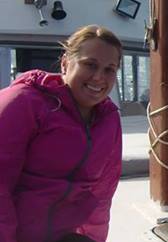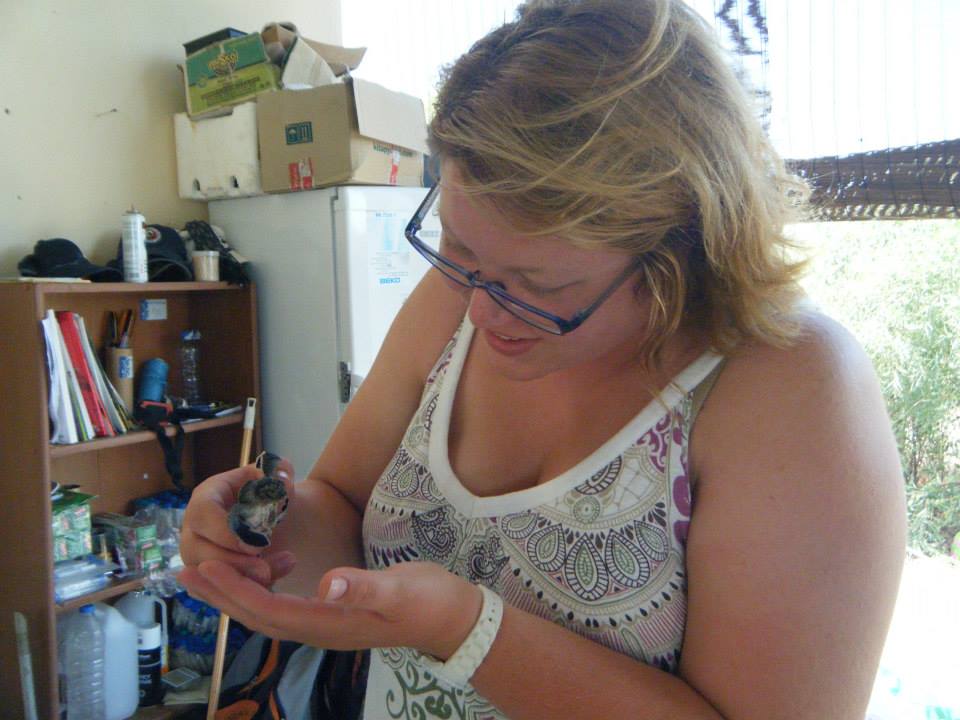 Shannon recently completed her Master’s degree in Biology here at UM-Flint this past April. Her thesis research was on animal behavior; specifically, canine cognition. She intends to soon start a Ph.D. in animal behavior (cetaceans such as whales and dolphins in particular) so that she can teach Marine Biology, Animal Behavior, or Marine Mammals at the college level. She also plans to conduct research on cetaceans and be involved in their conservation.
Shannon recently completed her Master’s degree in Biology here at UM-Flint this past April. Her thesis research was on animal behavior; specifically, canine cognition. She intends to soon start a Ph.D. in animal behavior (cetaceans such as whales and dolphins in particular) so that she can teach Marine Biology, Animal Behavior, or Marine Mammals at the college level. She also plans to conduct research on cetaceans and be involved in their conservation.
In the summer of 2014, she was accepted into an internship with the Bosphorus Dolphin Project in Istanbul, Turkey where she spent three months working on a Ph.D. candidate’s project on the effects of marine traffic on three species of dolphins in the Bosphorus (Istanbul Strait). She also got to spend time with WWF’s green sea turtle conservation project in Adana, Turkey.
Her work with dolphins began while she was still an undergraduate. During her off-campus study she interned with the U.S. Navy’s Marine Mammal Program in San Diego, California. She spent three months working alongside their research division on three different dolphin-related projects. One project was on bottlenose dolphin echolocation and off-axis response (essentially the range of peripheral “vision” the animals have and the distinctions they can make with their echolocation at the periphery). Another project was looking at CT scans of dolphin heads to locate anatomical landmarks and ratios between these to try to standardize future studies that use electrodes for recording auditory evoked potentials in order to evaluate hearing. The third project was looking at cross-modal perception in dolphins to determine if they can correctly transfer information gained only echoically with no visual input to the visual modality (and vice versa). In other words, if a dolphin echolocates on an object but doesn’t see it, will she still recognize that object in the future when she sees it but can’t echolocate on it?

She is grateful to the Honors Program for teaching her the writing and research skills necessary to succeed in graduate school. “I realize that ‘hard science’ folks often turn their noses up at all the classic literature we read, but I actually appreciated it. We covered literature but also learned how to make one’s ‘voice’ heard in different fields and modes (writing, speaking, presenting, etc). I appreciated that as many science courses value writing but don’t teach how to do it well.”
Her advice to Honors students is related to graduate study. “Find a school that suits your learning style and personality as well as a faculty mentor who does. I started a Master’s program prior to returning to UM-Flint but was medically unable to complete it. Neither the school nor my advisor were supportive of me during that time and so I dropped out. Although I was still struggling with some issues when I returned, the faculty [at UM-Flint] are much more student-focused. If you prefer to work on your own and don’t require collaboration and support to be successful, then you will do fine at a more ‘prestigious’ graduate school. If not, however, you should seek a lower tier school but develop the best project you can and attend lots of conferences so that your work will speak for itself rather than the name of the school on the diploma. Seek out the school that best suits how you learn and work best—you’ll be happier for it. Oh…and, of course, network, network, network!”
